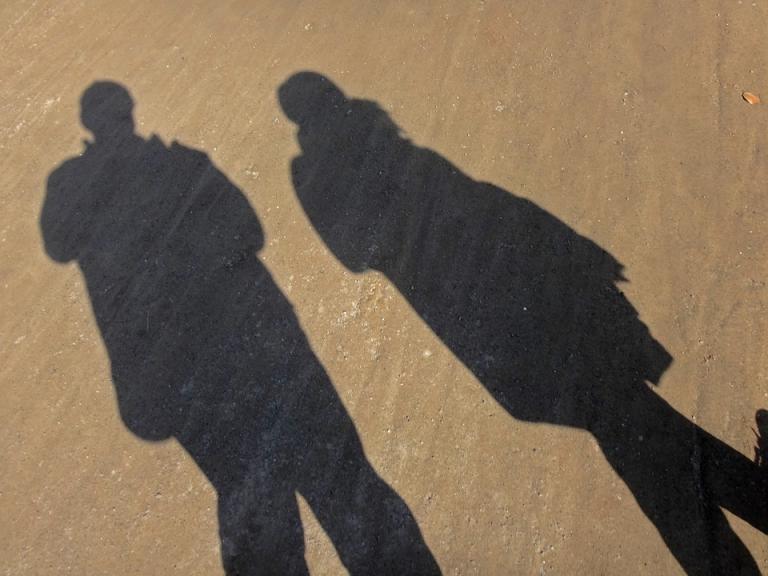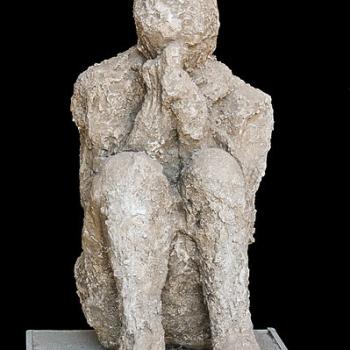by guest writer William M. Shea
The large point of difference between atheists and agnostics on one hand and my brand of Christian thinking on the other is this: I can know that God exists. In fact I have known and do know. I’m not saying this to promote an argument but only because I think I should put my cards on the table. To be brief, I can locate three possible ways of coming to the conclusion that God exists: community ethos and symbols; common sense experience, insight and judgment; and, later in life, philosophical reflection. In addition to knowing God I also believe in God because I’ve found in eighty years of life that it’s good for me to believe. I am a Christian because I found out that being Christian, acting, believing and worshiping, are good for me. Catholic Christian faith has turned out to be a chosen way of living, an immense benefit, a practice that illuminates the world and my own existence in it. Philosophical reflection is merely a circumstantial yet important support to a way of living, to a way of believing, and to a way of knowing. This is the briefest possible way of stating “where I stand.” And I assume that an atheist, too, has found his/her own stance to be every bit as good for him/her as I do mine.
In the immediately preceding post I tried to unfold gifts that, in my opinion, the atheist movement and writings and stance have to contribute to Christian thinking. I must confess that a large part of my poor brain has been educated by atheists and atheism. They constitute a significant part of the intellectual culture that I call my own. I have been paying attention to them since I began to study under them at Columbia University School of Philosophy in the late sixties. So, they’ve helped me think about my ‘way of life’ and, paradoxically, made me a more informed and self-conscious Catholic. Here are a few thoughts I’ve had that might be useful to them in terms of a badly needed dialogue.[1]
- Generally speaking, the epistemological thinking behind atheism can be expressed in two terms: empiricism and scientism. They are not the same but they surely overlap. Empiricism can be taken to mean that the contents of human experience, often viewed as sense experience (David Hume, Immanuel Kant) and sometimes more broadly as the interaction between the world and our probing intelligence (John Dewey). Scientism I take to be a fully formed philosophical judgement that scientific method is the only way to knowledge of any truths about ourselves and our world. Religious thinkers, of course, deny that the empirical limits human knowing and that science is the only way to genuine knowledge. They think that human knowing can and does transcend the empirical limits set to it. There are an awful lot of very smart theologians and philosophers throughout history who have concluded to and argued this position, from the great Greeks to Augustine, Aquinas and Newman and in our own century Royce, Hocking, Lonergan, Rahner, Hartshorne and Plantinga. Unless we dismiss these people as “not so bright” or merely deluded as Dawkins et al. seem to do, atheists can benefit from seeing the world in a different cognitive horizon than their own. There just might be something to learn here, not so much in terms of argument but of our understanding one another.
- A second old bone on which to chew: There has been an awful lot of Christian noise about atheism and the possibility of an ethical life. If you don’t believe you won’t do good, simply put. Another way of putting it is this: if there are no punishments in the afterlife there are no limits to human depravity. Sin will out! Christians have often suspected that atheism is the big step toward nihilism. But there has been significant development in some Christian thinking in the past century. As there is a human desire to know, there is a desire for the good and even the common good, which is distinct from the desire to know God, interrelated to be sure but still distinct. In other words, atheism involves natural ethical judgement, individual and social ethical growth, and even what Christians like Pope Francis names the “call to holiness.” Doesn’t this place another relevant issue on the table of dialogue?
- What does faith mean? Do they have it? Faith includes trust in existence as well as being a divine gift. Manifestly atheists rest on the first else atheists wouldn’t move much less think. According to Schubert Ogden and David Tracy such faith is ingredient to common human experience. The absence of faith of this sort might lead to madness or suicide. The question is whether this sort of faith overlaps the faith of which St. Paul speaks so eloquently in the Letter to the Romans. This sort is called “animal faith” by George Santayana with good reason. But can atheism be faith-filled? Can we trust and hope without God? It would seem to be so. But why?
- We humans know a little and we universally believe much more. Since Christians commonly think they know God exist and believe a lot more about God (e.g. God is Love, God is triune) none of which I would claim as knowledge strictly taken, can atheists also be called upon to say what they know as distinct from what they believe about God? Does the distinction hold?
- Do they know that God does not exist and how do they do so? Do they mean they believe that He doesn’t because they don’t find evidence enough in the empirical? Is atheism the same as agnosticism with simply an added dose of conviction?
- We, the atheists and agnostics and the Christian believers, are clearly under different intellectual, experiential, and spiritual bubbles. Granted this fact, are the bubbles mutually impenetrable? The last four popes didn’t think so. How about you?
William M. Shea, Ph.D.
[1] I also better understand why the Catholic Church once had The Index of Forbidden Books. Aside from the boors and polemicists among them, they are often an intellectually gifted bunch and a tough read. While I am not a fan of the New Atheists, I am of Feuerbach, Santayana, Dewey, Randall and the American Naturalists generally. They all thought carefully about religion sans cheap shots.
image credit: Woman-Shadow-Pair-Abstract-Man-101279.jpg












